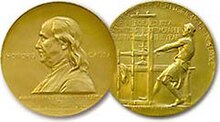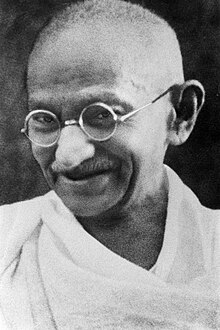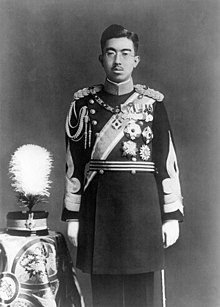Nagroda Pulitzera w dziedzinie literatury niefikcjonalnej
Nagroda Pulitzera w dziedzinie literatury faktu – jedna z kategorii Nagrody Pulitzera, przyznawana za wybitne osiągnięcia w dziedzinie literatury faktu. Po raz pierwszy nagrodę w tej kategorii przyznano w 1962. Wyróżniono nią książkę Theodore’a H. White’a o wyborach prezydenckich przeprowadzonych dwa lata wcześniej.
Lista nagrodzonych
Lata sześćdziesiąte:
| Data | Autor | Tytuł |
|---|---|---|
| 1962 | Theodore H. White[1] | The Making of the President, 1960 |
| 1963 | Barbara W. Tuchman[2][3] | The Guns of August[4] |
| 1964 | Richard Hofstadter[5] | Anti-intellectualism in American Life |
| 1965 | Howard Mumford Jones[6] | O Strange New World: American Culture, the Formative Years[7] |
| 1966 | Edwin Way Teale[8] | Wandering Through Winter: A Naturalist's Record of a 20,000 Mile Journey Through the North American Winter |
| 1967 | David Brion Davis[9] | The Problem of Slavery in Western Culture |
| 1968 | Will[10] i Ariel Durant | Rousseau and Revolution: A History of Civilization in France, England, and Germany from 1756 and in the Remainder of Europe from 1715 to 1789 |
| 1969 | Norman Mailer | The Armies of the Night: History as a Novel, the Novel as History |
| 1969 | Rene Jules Dubos[11] | So Human an Animal |
| 1970 | Erik H. Erikson[12][13] | Gandhi's Truth: On the Origins of Militant Non-Violence |
Lata siedemdziesiąte:
| Data | Autor | Tytuł |
|---|---|---|
| 1971 | John Toland[14] | The Rising Sun: The Decline and Fall of the Japanese Empire, 1936–1945 |
| 1972 | Barbara W. Tuchman | Stilwell and the American Experience in China, 1911–1945 |
| 1973 | Frances FitzGerald | Fire in the Lake: The Vietnamese and the Americans in Vietnam[15] |
| 1973 | Robert Coles | Children of Crisis, vol. 2 and 3 |
| 1974 | Ernest Becker[a]. | The Denial of Death |
| 1975 | Annie Dillard | Pilgrim at Tinker Creek |
| 1976 | Robert N. Butler | Why Survive?: Being Old in America |
| 1977 | William W. Warner[16] | Beautiful Swimmers: Watermen, Crabs, and the Chesapeake Bay[17] |
| 1978 | Carl Sagan[18] | The Dragons of Eden: Speculations on the Evolution of Human Intelligence |
| 1979 | Edward O. Wilson[19] | On Human Nature |
| 1980 | Douglas R. Hofstadter | Gödel, Escher, Bach: An Eternal Golden Braid |
Lata osiemdziesiąte
| Data | Autor | Tytuł |
|---|---|---|
| 1981 | Carl E. Schorske | Fin-de-Siècle Vienna: Politics and Culture |
| 1982 | Tracy Kidder | The Soul of a New Machine |
| 1983 | Susan Sheehan | Is There No Place on Earth for Me?[20] |
| 1984 | Paul Starr | The Social Transformation of American Medicine: The Rise of a Sovereign Profession and the Making of a Vast Industry |
| 1985 | Studs Terkel | The Good War: An Oral History of World War Two |
| 1986 | J. Anthony Lukas | Common Ground: A Turbulent Decade in the Lives of Three American Families |
| 1886 | Joseph Lelyveld | Move Your Shadow: South Africa, Black and White |
| 1987 | David K. Shipler | Arab and Jew: Wounded Spirits in a Promised Land |
| 1988 | Richard Rhodes[21] | The Making of the Atomic Bomb |
| 1989 | Neil Sheehan[22] | Bright Shining Lie: John Paul Vann and America in Vietnam |
| 1990 | Dale Maharidge, Michael Williamson | And Their Children After Them: The Legacy of Let Us Now Praise Famous Men: James Agee, Walker Evans, and the Rise and Fall of Cotton in the South |
Lata dziewięćdziesiąte
| Data | Autor | Tytuł |
|---|---|---|
| 1991 | Bert Holldobler, Edward O. Wilson | The Ants |
| 1992 | Daniel Yergin | The Prize: The Epic Quest for Oil, Money, and Power |
| 1993 | Garry Wills | Lincoln at Gettysburg: The Words That Remade America |
| 1994 | David Remnick | Lenin's Tomb: The Last Days of the Soviet Empire |
| 1995 | Jonathan Weiner | The Beak of the Finch: A Story of Evolution in Our Time[23] |
| 1996 | Tina Rosenberg | The Haunted Land: Facing Europe's Ghosts After Communism |
| 1997 | Richard Kluger | Ashes to Ashes: America's Hundred-Year Cigarette War, the Public Health, and the Unabashed Triumph of Philip Morris |
| 1998 | Jared Diamond | Strzelby, zarazki, maszyny |
| 1999 | John McPhee | Annals of the Former World |
| 2000 | John W. Dower | Embracing Defeat: Japan in the Wake of World War II |
Pierwsze dziesięciolecie XXI wieku:
| 2001 | Herbert P. Bix | Hirohito and the Making of Modern Japan |
| 2002 | Diane McWhorter | Carry Me Home: Birmingham, Alabama, the Climactic Battle of the Civil Rights Revolution |
| 2003 | Samantha Power | "A Problem from Hell": America and the Age of Genocide |
| 2004 | Anne Applebaum[24] | Gulag: A History |
| 2005 | Steve Coll | Ghost Wars: The Secret History of the CIA, Afghanistan, and bin Laden, from the Soviet Invasion to September 10, 2001 |
| 2006 | Caroline Elkins[25] | Imperial Reckoning: The Untold Story of Britain's Gulag in Kenya |
| 2007 | Lawrence Wright | The Looming Tower: Al-Qaeda and the Road to 9/11 |
| 2008 | Saul Friedländer | The Years of Extermination: Nazi Germany and the Jews, 1939–1945 |
| 2009 | Douglas A. Blackmon | Slavery by Another Name: The Re-Enslavement of Black Americans from the Civil War to World War II |
| 2010 | David E. Hoffman[26] | The Dead Hand: The Untold Story of the Cold War Arms Race and Its Dangerous Legacy |
Drugie dziesięciolecie XXI wieku:
| 2011 | Siddhartha Mukherjee | The Emperor of All Maladies: A Biography of Cancer[27] |
| 2012 | Stephen Greenblatt | The Swerve: How The World Became Modern |
| 2013 | Gilbert King | Devil in the Grove: Thurgood Marshall, the Groveland Boys, and the Dawn of a New America[28] |
| 2014 | Dan Fagin[29] | Toms River: A Story of Science and Salvation[30] |
| 2015 | Elizabeth Kolbert[31] | The Sixth Extinction: An Unnatural History[32] |
| 2016 | Joby Warrick[33] | Black Flags: The Rise of ISIS |
| 2017 | Matthew Desmond[34] | Evicted: Poverty and Profit in the American City |
| 2018 | James Forman | Locking Up Our Own: Crime and Punishment in Black America |
| 2019 | Eliza Griswold | Amity and Prosperity: One Family and the Fracturing of America[35] |
| 2020 | Greg Grandin | The End of the Myth: From the Frontier to the Border Wall in the Mind of America[36] |
| Anne Boyer | The Undying: Pain, Vulnerability, Mortality, Medicine, Art, Time, Dreams, Data, Exhaustion, Cancer, and Care[37] |
Trzecie dziesięciolecie XXI wieku:
| 2021 | David Zucchino | Wilmington’s Lie: The Murderous Coup of 1898 and the Rise of White Supremacy[38] |
| 2022 | Andrea Elliott | Invisible Child: Poverty, Survival and Hope in an American City[39] |
Uwagi
- ↑ Nagroda przyznana pośmiertnie.
Przypisy
- ↑ Theodore H. White, [w:] Encyclopædia Britannica [online] [dostęp 2018-05-07] (ang.).
- ↑ Barbara Tuchman, [w:] Encyclopædia Britannica [online] [dostęp 2018-05-07] (ang.).
- ↑ Barbara Tuchman, Journalist, Historian (1912–1989). biography.com. [dostęp 2018-05-07]. [zarchiwizowane z tego adresu (2019-04-13)]. (ang.).
- ↑ Vince Goulding: Barbara W. Tuchman, The Guns Of August (1962). hoover.org. [dostęp 2018-05-07]. (ang.).
- ↑ Richard Hofstadter, [w:] Encyclopædia Britannica [online] [dostęp 2018-05-07] (ang.).
- ↑ A Remembrance of Howard Mumford Jones. jstor.org. [dostęp 2018-05-07]. (ang.).
- ↑ Howard Mumford Jones Receives A Pulitzer Prize for Non-Fiction. thecrimson.com. [dostęp 2018-05-07]. (ang.).
- ↑ Edwin Way Teale. in.gov. [dostęp 2018-05-07]. (ang.).
- ↑ David Brion Davis. history.yale.edu/p. [dostęp 2018-05-07]. (ang.).
- ↑ Will Durant. will-durant.com. [dostęp 2018-05-07]. (ang.).
- ↑ René Dubos, [w:] Encyclopædia Britannica [online] [dostęp 2018-05-07] (ang.).
- ↑ Erik Erikson, [w:] Encyclopædia Britannica [online] [dostęp 2018-05-07] (ang.).
- ↑ Erik H. Erikson, Educator, Psychologist, Journalist, Scholar (1902–1994). biography.com. [dostęp 2018-05-07]. [zarchiwizowane z tego adresu (2018-03-23)]. (ang.).
- ↑ Historian John Toland Dies. washingtonpost.com. [dostęp 2018-05-07]. (ang.).
- ↑ Fire in the Lake: The Vietnamese and the Americans in Vietnam, by Frances FitzGerald. pulitzer.org. [dostęp 2018-05-10]. (ang.).
- ↑ William Grimes: William W. Warner, Chesapeake Bay Author, Dies at 88. nytimes.com. [dostęp 2018-05-09]. (ang.).
- ↑ William Warner, Literary champion of the crabs of Chesapeake Bay. theguardian.com. [dostęp 2018-05-09]. (ang.).
- ↑ Carl Sagan Founder and First President of The Planetary Society. planetary.org. [dostęp 2018-05-08]. (ang.).
- ↑ E.O. Wilson, [w:] Encyclopædia Britannica [online] [dostęp 2018-05-09] (ang.).
- ↑ Is There No Place on Earth for Me?, by Susan Sheehan. pulitzer.org. [dostęp 2018-05-14]. (ang.).
- ↑ Richard Rhodes. richardrhodes.com. [dostęp 2018-05-08]. (ang.).
- ↑ Neil Sheehan. achievement.org. [dostęp 2018-05-09]. (ang.).
- ↑ Jonathan Weiner. journalism.columbia.edu. [dostęp 2018-05-10]. (ang.).
- ↑ Dorota Kowalska: Anne Applebaum. Żona Radosława Sikorskiego to dziś jedna z najbardziej wpływowych Polek. polskatimes.pl. [dostęp 2018-05-11]. (pol.).
- ↑ Caroline M. Elkins, Visiting Professor of Business Administration. hbs.edu. [dostęp 2018-05-11]. (ang.).
- ↑ David E. Hoffman, Contributing editor. washingtonpost.com. [dostęp 2018-05-13]. (ang.).
- ↑ The Emperor of All Maladies: A Biography of Cancer, by Siddhartha Mukherjee. pulitzer.org. [dostęp 2018-05-12]. (ang.).
- ↑ William Grimes: Making a Name by Uncovering a Lost Case. nytimes.com/. [dostęp 2018-05-13]. (ang.).
- ↑ Dan Fagin. Bio. danfagin.com. [dostęp 2018-05-13]. (ang.).
- ↑ Toms River: A Story of Science and Salvation, by Dan Fagin. pulitzer.org. [dostęp 2018-05-13]. (ang.).
- ↑ Elizabeth Kolbert. newyorker.com. [dostęp 2018-05-12]. (ang.).
- ↑ The 100 best nonfiction books: No 1 – The Sixth Extinction by Elizabeth Kolbert (2014). theguardian.com. [dostęp 2018-05-12]. (ang.).
- ↑ Joby Warrick. washingtonpost.com. [dostęp 2018-05-12]. (ang.).
- ↑ Matthew Desmond. scholar.harvard.edu. [dostęp 2018-05-13]. (ang.).
- ↑ Announcement of the 2019 Pulitzer Prize Winners, Pulitzer, 15 kwietnia 2019 [dostęp 2019-04-16] (ang.).
- ↑ Greg Grandin, The Pulitzer Prizes [dostęp 2020-05-06].
- ↑ Anne Boyer, The Pulitzer Prizes [dostęp 2020-05-06].
- ↑ Abigail Freeman, Pulitzer Prizes 2021: The Full List Of Winners, Forbes, 11 czerwca 2021 [dostęp 2021-06-11] (ang.).
- ↑ Pulitzer Prizes 2022: A Guide to the Winning Books and Finalists, „The New York Times”, 9 maja 2022, ISSN 0362-4331 [dostęp 2022-05-13] (ang.).
Linki zewnętrzne
- General Nonfiction. pulitzer.org. [dostęp 2018-05-07]. (ang.).
Media użyte na tej stronie
Hirohito in dress uniform
Mohandas K. Gandhi
Part of Image:Planetary society.jpg Original caption: "Founding of the Planetary Society Carl Sagan, Bruce Murray and Louis Friedman, the founders of The Planetary Society at the time of signing the papers formally incorporating the organization. The fourth person is Harry Ashmore, an advisor, who greatly helped in the founding of the Society. Ashmore was a Pulitizer Prize winning journalist and leader in the Civil Rights movement in the 1960s and 1970s."
Picture of John F. Kennedy
Barbara Wertheim Tuchman, an American historian.













